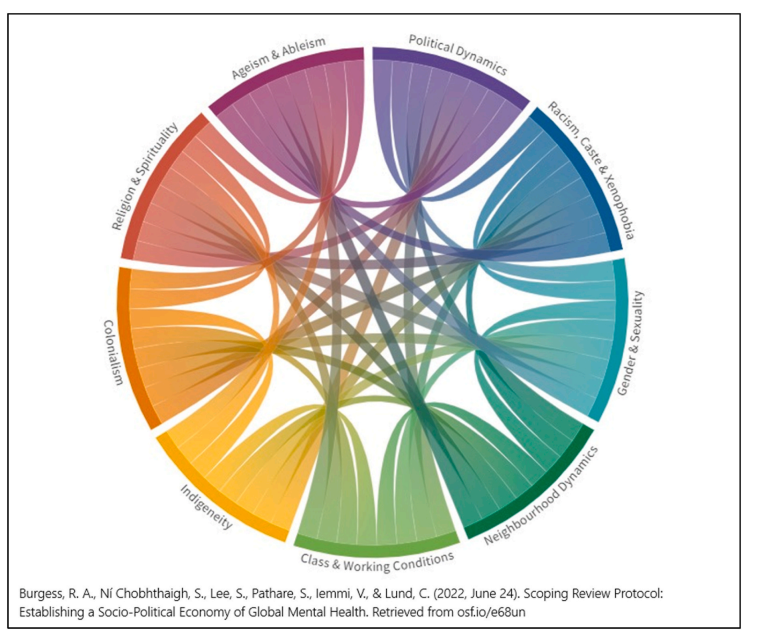
Feb 28, 2025
Caste's Effect on Mental Health of Dalit Girls in India
Pictured above: Melpattambakkam students attend a prayer service following the recent tragedy at the boarding home.
Imagine this: a family hasn't had access to quality education and employment opportunities for generations due to their race. They've been living in poverty, and the family's unstable housing and income causes their child to feel anxious, so they act out at school. Because of racial stereotypes, the school staff blames the behavior on the child's personality and doesn't consider recommending therapy to the parents.
When a teacher finally thinks to suggest therapy, the family isn't able to afford the fees. The school helps them find a grant, but the only therapists in the area are middle-class and don't belong to the family's racial group. The parents decide to start therapy for their children, but the therapists don't understand the racial and class dynamics at play, so the treatment is only partially effective.
This highlights the importance of approaching mental health causes and treatments from a holistic point of view. It also emphasizes the need to have culturally-responsive and accessible care that gets at the heart of the issues.
Considering Mental Health in a Holistic Context
In recent years, there has been a growing push to think about social determinants of mental health, in addition to biology and neurochemistry. Social determinants consider the ways in which a person's living and working conditions affect their overall health.
In fact, the mental health field has been starting to seriously consider the ways in which intersecting social, economic, and political conditions impact mental health.
The graphic above shows a "Socio-Political Economy of Global Mental Health" and provides a visual representation of the many overlapping and intersecting dynamics that can influence a person's mental health.
For example, instead of viewing a person's class and race as separate entities with separate effects on their health, it invites us to consider how class and race dynamics interact with one another to create a complex and unique experience. All of these dynamics work together to affect one's mental health, as well as one's access to mental health care.
Caste and Mental Health in India
Many of the students living in the ALC boarding homes are Dalit, which means "oppressed" or "broken". Members of this group have sometimes been called "untouchable," because they are considered to be born outside of the Indian castes, historically given unsanitary work, and therefore also thought of as spiritually contaminated. Dalit people gave themselves this name in the 1930s in an effort to reclaim this previously derogatory term.
While Dalit people are citizens of India, have rights under the Indian Constitution, and are supported through constitutional provisions and reservation policies, this group continues to face pervasive discrimination when accessing education, housing, employment, and political participation. Women and girls experience high rates of sexual violence, sex and labor trafficking, early and forced marriage, and harmful cultural practices. Studies also show that Dalit people have comparatively poor health outcomes.
One study from 2024 found that social discrimination, including caste discrimination, was linked to poor mental health.
A 2012 study found that women belonging to Dalit or Tribal caste backgrounds reported higher psychological stress than higher-caste women. This study found that Indian women from lower castes, with limited education and a lack of financial stability, are vulnerable to gender-based violence. Research has repeatedly shown that violence can have a negative impact on mental health. This illustrates one way in which caste, gender, and class interact to negatively impact mental health.
When you consider the backgrounds of Dalit and Tribal students at the ALC boarding homes, it is no surprise that many students experience mental health struggles. For female students, in particular, the intersecting dynamics of gender, caste, and class make them especially vulnerable.
Heavy News from Melpattambakkam Boarding Home
Content Warning: Mention of Suicide*
In the context of the information above, we have heavy news to share. A 9th grade student died by suicide at Melpattambakkam Boarding Home on February 7, 2025. As expected, her death deeply shook the campus, and a number of students temporarily left the boarding home. Many students are now returning to Melpattambakkam, and staff members are supporting them by hosting prayer services, as well as by planning a trauma-informed counseling program for all students, which will occur throughout the day on March 1.
Thankfully, staff members are equipped to support students through this trying time. Dr. Benita Prince, Melpattambakkam's manager, is a child psychologist, and Keerthiga, the Sponsor Relations Coordinator (SRC) at Melpattambakkam has a master's degree in social work.
While this student wasn't sponsored, we as a community care about every student. Her death has affected many LPGM-sponsored students. If your sponsored student lives at Melpattambakkam, we encourage you to reach out to her. Your words of support and encouragement can make a real difference. Your prayers would also be appreciated.
We are in regular communication with the staff in India and are willing to answer any questions and share more details as we learn them.
Moving Forward
At LPGM, we are committed to supporting students at the margins in all areas of their lives, from nutritious meals and school supplies to spiritual support and mental health services.
We will continue working alongside our partner, the Arcot Lutheran Church (ALC), a Dalit-led church body serving Dalit people in the southeastern Indian state of Tamil Nadu, to identify opportunities to provide culturally responsive mental health support - like seminars, materials, and speakers.
It's also important to remember that quality education can be a protective measure for mental health. A good education that extends through secondary education or higher education can lead to a well-paying job in the government or private sector, which can reduce poverty-driven stressors and gender-based violence risk factors.
Education isn't a substitute for mental health care, and it won't erase the stigma of being Dalit, but it can certainly improve a student's material conditions, life prospects, and provide hope for their family and their community.
If you feel called to support this work, please consider giving to our general Project Education India fund. Please direct any questions to Bethany Krepela, LPGM Development Director, at 612-806-0733 or bethany@lutheranpartners.org. Thank you in advance for your support of these students' holistic well-being.
Support Project Education India (PEI)
*If you, or someone you know, is struggling with suicidal thoughts, please call the free 988 Lifeline.

Written by Shannon Mahedy, LPGM communications coordinator. Shannon has worked in survivor advocacy with victim/survivors of sexual and domestic violence and with people living with mental health disorders.







